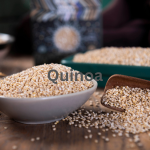To improve overall well-being, it is important to lead a healthy lifestyle and maintain balanced blood sugar levels. In this task, we will explore effective strategies and lifestyle changes that can assist in managing blood sugar without medication. This includes making dietary adjustments, engaging in physical activity, managing stress, and considering natural remedies. Regular monitoring and consulting with healthcare professionals are crucial, along with exploring the potential benefits of alternative therapies and herbal supplements. By providing practical advice, evidence-based information, and empowering insights, readers can achieve better sugar control and enhance their overall health naturally.
What is diabetes?
Diabetes is a medical condition where your body cannot properly use the energy from the food you eat. This can cause your blood sugar levels to remain too high. This can happen when your pancreas does not produce enough insulin or when your body cannot use it as it should. Insulin helps your body use glucose (a type of sugar) from the food you eat. Diabetes can last for a long time and can affect how you feel and how you live your life. It can be more dangerous if we ignore it & keep eating allopathic medicine.
Types of Diabetes
There are three main types of diabetes:
Type 1 diabetes: This type is an autoimmune condition where the immune system mistakenly attacks and destroys the insulin-producing cells in the pancreas. People with type 1 diabetes require lifelong insulin injections or the use of an insulin pump to survive.
Type 2 diabetes: This type is the most common form of diabetes and usually develops later in life. It occurs when the body becomes resistant to the effects of insulin, and the pancreas may not produce enough insulin to compensate. Type 2 diabetes can often be managed through lifestyle changes, such as a healthy diet, regular physical activity, weight management, and sometimes medication.
Gestational diabetes: This type occurs during pregnancy when hormonal changes can lead to insulin resistance. It usually resolves after giving birth, but women who have had gestational diabetes have a higher risk of developing type 2 diabetes later in life.
Here are some effective tips that can help you control sugar levels without taking medicines.
Choose low glycemic index foods:
Low glycemic index (GI) food which release glucose more slowly into the blood & helps in preventing sharp spikes in blood sugar levels. Low glycemic index foods, which are often rich in fiber and nutrients and play a crucial role in glucose managment.
There are lots of benefits of low glycemic index food including:-
- Support for healthy weight management.
- Develop digestive health.
- Encrease energy level.
- Blood sugar control.
- Minimize risk of chronic diseases.
- Improve heart health.
List of low glycemic index foods
Whole grains:
Whole grains like quinoa, oats, barley, and brown rice have a lower GI compared to refined grains. They are rich in fiber, vitamins, minerals, and antioxidants. Whole grains provide sustained energy, promote digestive health, and help regulate blood sugar levels.
Best Millets
- Millets Millet
- Browntop Millet
- Baryard Millet
- Kodo Millet
- Little Millet
- Foxtail Millet
Nuts and Seeds:
Nuts and seeds, such as almonds, walnuts, chia seeds, and flaxseeds, have a low glycemic index (GI). They are excellent sources of healthy fats, protein, fiber, and various micronutrients. Nuts and seeds contribute to heart health, satiety, and help manage blood sugar levels.
Citrus fruits:
Citrus fruits such as lemons, grapefruits, and oranges have a relatively low GI. They are rich in vitamin C, fiber, and antioxidants. Citrus fruits improve immune system and have a minimal impact on blood sugar levels.
Green leafy vegetables:
Green leafy vegetables such as kale, spinach, coriander leaf, radish leaf and Swiss chard have a low GI. They contains with minerals, vitamins and antioxidants elements. Green leafy vegetables contribute to overall health, provide fiber, and helps to manage blood sugar levels. Green leaf can be consumed as row or we can make smoothie. It is highly recomended that one should eat 250gm to 400gm green leaf in a day. You will see your blood sugar level will become normal in a day only.
Berries:
Berries such as blueberries, blackberries, strawberries and raspberries have a relatively low GI. They are contains with vitamins, minerals, antioxidants, and fiber. Berries helps in various health benefits, including heart health, and immune support.
Low-starchy vegetables:
Vegetables like spinach, broccoli, kale, cauliflower, lady finger, and bell peppers have a low GI. They are rich in minerals, fiber, vitamins and antioxidants. Non-starchy vegetables helps overall health, by providing essential nutrients, and have a minimal impact on blood sugar levels
Regular exercise and medidation:
Regular exercise has variouse benefits for controlling blood sugar levels, particularly for people with diabetes or those who are at risk of developing it. Exercise enhances insulin sensitivity, resulting in better glucose uptake. It reduces blood sugar levels and aids weight management. Exercise regulates glucose release from the liver and also helps to store glucose in the muscles, stabilizing blood sugar levels. By improving heart function, reducing blood pressure, and cholesterol levels, exercise supports cardiovascular health. When done consistently over time, exercise promotes long-term improvements in blood sugar management and overall lifestyle changes that positively impact blood sugar control. Moreover, regular exercise reduces stress levels, which can contribute to elevated blood sugar levels.
Proper sleep:
Proper sleep is essential for maintaining optimal blood sugar control, especially for individuals with diabetes or those at risk of developing diabetes. Here’s how proper sleep can help:
Regulate the hormones system.
It improved insulin sensitivity in body.
Improve appetite system.
Stress reduction.
Advise, it’s important to consult with a healthcare professional before making significant changes to your diet, exercise routine, or medication regimen, especially if you have diabetes or any underlying health conditions. They can guide personalized recommendations based on your individual needs, current health level and medical history.




